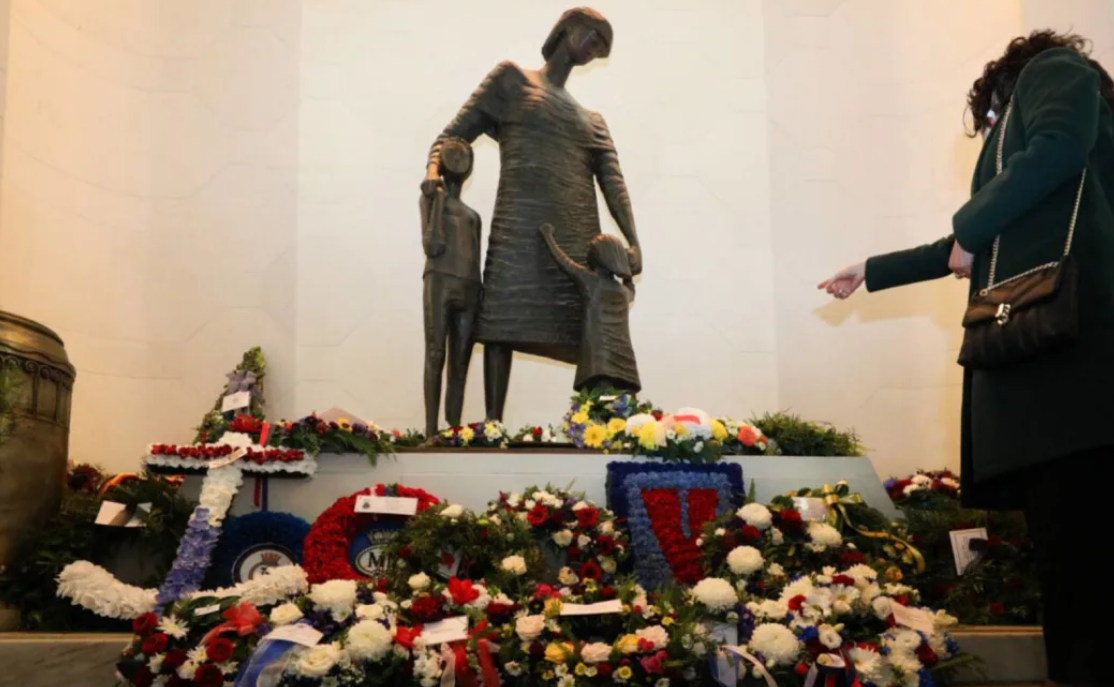
The 11am wreath laying service at Pukeahu National War Memorial Park was cancelled, as was the Ataturk Memorial wreath laying service in Strathmore.
MetService expects winds of up to 109km/h in central Wellington.
Ministry for Culture and Heritage chief executive Leauanae Laulu Mac Leauanae said: "It is very unfortunate that we have had to cancel today's service due to high winds."
A reduced service went ahead for those people organised to lay wreaths at the Tomb of the Unknown Warrior.

Speaking from the Pukeahu National War Memorial in Wellington, Dame Cindy Kiro said 109 years after the landing at Gallipoli, Anzac Day still held deep significance for New Zealanders.
"Though we no longer have direct links to those who witnessed WW1, such was its impact that it will always remain part of our family histories and our collective memory," she said.
Since the first Anzac Day on 25 April 1916, the scope of remembrance had expanded to include all other wars and armed conflicts in which New Zealand was involved, as well as ongoing efforts in peacekeeping.

It was also the 80th anniversary of a number of significant campaigns during WWII: Battle of Cassino, the New Zealand 2nd Division's role in the capture of Faenza, the RNZAF operations in the Pacific, and the New Zealand 3rd Division's involvement in operations against Japanese troops on Nissan Island, just north of Bougainville.
The number of WW2 veterans grew fewer each year, she said.
Police said they were expecting a busy weekend on the roads, as many would also take Friday off and head away.
It would be the second long weekend in under a month, after the Easter break, and the message remained the same for people behind the wheel - to do their relaxing once they had finished driving to their destination.

Meanwhile, speaking from Turkey, where the recent flooding at Dubai Airport had caused mayhem with luggage, leaving the New Zealand delegation without half its bags, NZDF's Gallipoli commemoration lead John McLeod said the show must go on.
He said 42 of the 65 bags had arrived. People had swapped uniforms around and they had a guitar on-hand, so they would still be able to take part in the ceremony - it would just look a little different.
"New Zealand's had tougher days on the Gallipoli peninsula than not having a few uniforms," he said. "It's all about the context, really."












